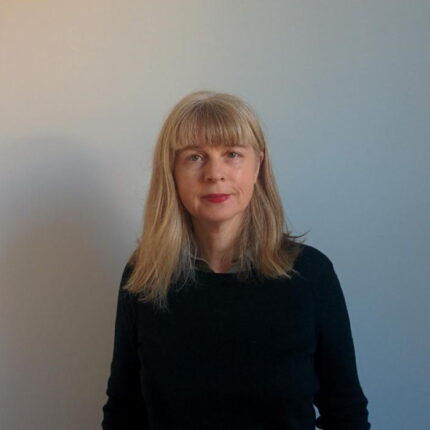Last month we at The Cultural Capital Exchange (TCCE) launched a new National Centre for Academic and Cultural Exchange (NCACE) funded by Research England to run over the next four years.
The purpose of the centre is to facilitate and support capacity for Knowledge Exchange between higher education and the arts and cultural sector across the country and to evidence and showcase the social, cultural, environmental, and economic impacts of such activities. It’s four areas of work are:
- Collaboration Support and Networking
- Skills and Capacity Development
- Evidence Building and Impact Development
- Showcasing and Communications.
Evaluation is being embedded from the start to ensure that we can iterate and respond to challenges and opportunities ahead. It is really important to us that everything we do as a centre will be underpinned by values of inclusivity and diversity and our activities are open to those working in HEIs across the country as well as to those working in the arts and cultural sector and beyond.
Art is everywhere
We are delighted to be partnering with four universities, all strongly networked with the arts and cultural sectors, including: Bath Spa University, Birmingham City University, Manchester Metropolitan University and Northumbria University – and the following examples of their partnerships are necessarily illustrative rather than exhaustive.
Northumbria University works closely with New Writing North and has a strong partnership with BALTIC (a major contemporary arts organisation); Paper Nations, led by Professor Bambo Soyinka, is a creative writing incubator housed at Bath Spa University; Birmingham City University brings STEAMhouse, a new centre for innovation that unites talent across the arts, technology, sciences, maths and engineering; and Manchester Metropolitan University, our evaluation lead, is involved in a plethora of activities including catalytic projects such as Portraits of Recovery.
Relationships between academia and the arts and culture sector are no new thing, of course. While knowledge exchange as a phrase isn’t well known beyond the higher education sector, all sorts of partnerships, collaborations, networks, and connections of myriad kinds exist. And there is a real desire from the arts to work with research, even if the means by which to do so can still be hard to navigate.
The nature, scope, scale, drivers and not to mention the duration of these relations are important – and we plan to use them to help us to understand and communicate this complex landscape of relations. There is so much more to know about the wider impacts of these activities and the ecologies in which they are supported and developed.
Infrastructure for culture
All around the country are examples of physical infrastructure – buildings within or attached to universities – housing cultural spaces of different kinds. Many of these are active in encouraging knowledge flows and creative exchanges between research and the arts, and beyond into areas such as health and place-making. ACCA (originally The Gardner Arts Centre) based at University of Sussex describes itself, for example, as “an interdisciplinary arts hub connecting the university with wider regional, national and international arts communities”. Public engagement is a vital part of knowledge exchange and can be found deep in the DNA of many such organisations.
The mission of University of Southampton’s John Hansard Gallery is “to create extraordinary encounters with great art that inspire people and communities to change the world for the better”. Many museums and galleries are located within or closely partnered with universities – and we are also now witnessing the emergence of different kinds of spaces, often maker or innovation focussed, with newer types of cultural capital and wider ambitions, such as the aforementioned STEAMHouse in Birmingham.
Small scale, big impact
While cultural infrastructure may be part of the wider picture, relations between research and the arts are by no means all about buildings. Most self-identifying knowledge exchange projects tend after all to be people and projects.
Many are also likely to be modestly funded and short in duration. We have always advocated the value of supporting the small-scale. We have done so through our work on the AHRC funded Creativeworks London and The Exchange ( which was funded by HEFCE and Arts Council England) because we know that, often such projects lead onto bigger things. The Manifest Data Lab, for example, came about through conversations leading from a Creativeworks London residency undertaken by Giles Lane from Proboscis at Birkbeck back in 2014. The lab is a collaboration with Proboscis, Birkbeck, Central Saint Martins and the British Antarctic Survey, and is funded by AHRC. It wasestablished to give people tactile ways to connect with, and make meaning from, data on how our world and ecologies are changing.
Over the years at TCCE we have developed many different events and programmes to bring research and the arts and culture worlds together. We have all too often heard great stories about the things that happen after funding schemes have ended. Whilst it is both heart-warming and incredibly important that these stories exist and get told, it is our hope that with NCACE – for the first time – we will be able to capture this more fully and move beyond the anecdotal. As well as supporting knowledge exchange which – through instruments like the KEF and the KE Concordat – is finally starting to feel valued as work in its own right, we hope to develop a better picture and common understanding about the scope and benefits of relations between universities and the arts, and the knowledge flows and exchanges these generate. There is so much to gain in so doing and so much to lose if we don’t.
NCACE’s website goes live in January 2021. You can sign up for the TCCE monthly e-newsletter and monthly NCACE Update Bulletin here and follow on Twitter @CultureImpacts.












